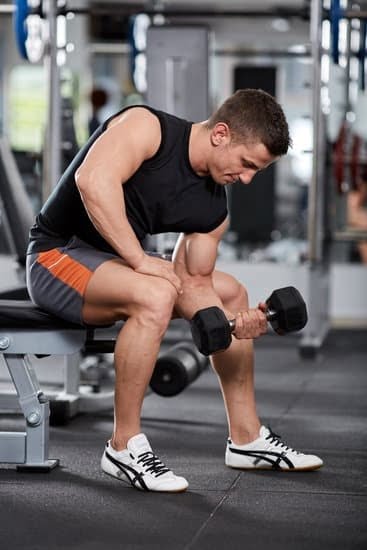Are you looking to become fit without exercise? There’s a common misconception that physical activity is the only way to achieve fitness, but the reality is that there are numerous lifestyle changes that can contribute to overall health and well-being. In this article, we’ll explore the various ways in which you can improve your fitness without necessarily hitting the gym or going for a run.
It’s no secret that diet and nutrition play a significant role in our overall health, including our fitness levels. By making conscious choices about the foods we consume, we can positively impact our bodies in more ways than we may realize. Additionally, staying hydrated, getting adequate sleep, managing stress levels, engaging in regular movement and activity, forming healthy habits, and prioritizing mental health all contribute to an individual’s overall fitness.
Throughout this article, we will delve into each of these aspects and provide practical tips for incorporating them into your daily routine. By making small yet meaningful adjustments to your lifestyle, you can begin to witness improvements in your fitness levels and overall well-being. So let’s dive into how you can achieve fitness without solely relying on exercise.
Diet and Nutrition
When it comes to achieving overall fitness, diet and nutrition play a crucial role in supporting a healthy lifestyle. While many people may associate fitness solely with exercise, the truth is that what you put into your body is just as important as physical activity. A balanced diet that includes a variety of fruits, vegetables, lean proteins, and whole grains provides the necessary nutrients for optimal health and fitness.
Incorporating healthy eating habits into your daily routine can have a significant impact on your overall well-being. Avoiding processed foods high in sugar and unhealthy fats can help reduce the risk of chronic diseases and support weight management. Additionally, being mindful of portion sizes and choosing nutrient-dense foods can provide sustained energy throughout the day, improving physical performance and mental clarity.
It’s important to note that achieving fitness through diet and nutrition is not about following strict diets or depriving yourself of your favorite foods. Instead, it’s about making sustainable choices that nourish your body and contribute to long-term wellness. By focusing on consuming a variety of nutrient-rich foods in appropriate portions, you can take significant steps towards achieving your fitness goals without relying solely on exercise.
Hydration
Staying hydrated is a crucial aspect of overall health and fitness, yet it is often overlooked. Proper hydration is essential for various bodily functions and can significantly impact how we feel and perform on a daily basis. Here are some key tips for ensuring adequate hydration throughout the day:
- Drink plenty of water: Aim to drink at least 8-10 cups of water per day to maintain proper hydration levels. This will vary depending on factors such as age, weight, and physical activity level.
- Eat water-rich foods: Incorporate fruits and vegetables with high water content into your diet, such as cucumbers, watermelon, celery, and oranges.
- Avoid excessive caffeine and alcohol: Both caffeine and alcohol can have dehydrating effects on the body, so it’s important to consume them in moderation.
- Carry a reusable water bottle: Having a water bottle with you throughout the day serves as a visual reminder to stay hydrated and makes it easier to reach for fluids when needed.
By making a conscious effort to prioritize hydration, individuals can support their overall fitness goals and well-being. Whether at work, home, or on the go, maintaining proper hydration is essential for feeling energized, improving cognitive function, and aiding in digestion.
Additionally, it’s important to note that by the time you feel thirsty, you may already be mildly dehydrated. Therefore, it’s crucial to establish consistent habits that promote adequate hydration throughout the day. Whether through setting reminders or tracking daily water intake, finding strategies that work for you is key to sustaining optimal hydration levels for improved fitness and wellness.
Sleep
Role of Sleep in Fitness
Quality sleep is essential for the body’s recovery and repair process. During deep sleep, the body releases growth hormones that aid in muscle repair, tissue regeneration, and the maintenance of a healthy immune system. Additionally, inadequate sleep can lead to an imbalance in hunger hormones, resulting in increased appetite and cravings for unhealthy foods, which can negatively impact overall fitness goals.
Tips for Improving Sleep Quality
To improve the quality of your sleep, it’s important to establish a regular sleep schedule by going to bed and waking up at the same time each day. Creating a calming bedtime routine, such as reading or meditating before bed, can signal to your body that it’s time to wind down. Additionally, ensuring that your sleep environment is conducive to rest by keeping it dark, quiet, and comfortable can promote better sleep quality.
Adequate Duration of Sleep
Most adults require 7-9 hours of sleep per night for optimal health and fitness. Adequate duration of sleep ensures that the body has enough time to complete all stages of the sleep cycle, including REM (rapid eye movement) sleep crucial for cognitive function. Establishing a consistent bedtime routine and creating a comfortable sleeping environment are key components of achieving an adequate duration of rest.
By prioritizing quality and duration of sleep as part of your lifestyle changes for improved fitness, you can optimize your body’s natural processes for physical recovery and overall well-being.
Stress Management
Stress can have a significant impact on both physical and mental health, making it important to effectively manage and reduce stress levels for overall fitness. Here are some strategies for managing and reducing stress:
1. Practice relaxation techniques: Engaging in activities such as deep breathing, meditation, or yoga can help reduce stress levels and promote relaxation.
2. Time management: Effective time management can help reduce feelings of being overwhelmed and stressed. Prioritize tasks, delegate when possible, and take breaks to avoid burnout.
3. Physical activity: Regular exercise is known to be a great stress reliever. Whether it’s going for a walk, practicing yoga, or participating in a favorite sport, physical activity can help reduce stress levels and improve mood.
4. Social support: Building strong social connections and spending time with friends and family can provide emotional support during stressful times. Talking about your feelings with someone you trust can help alleviate stress.
5. Healthy lifestyle habits: Eating a balanced diet, getting enough sleep, staying hydrated, and avoiding excessive caffeine or alcohol intake can all contribute to better stress management.
By incorporating these stress management techniques into your daily routine, you can work towards reducing the negative impact of stress on your overall fitness and well-being. Stress reduction is an important part of achieving fitness without relying solely on exercise.
Movement and Activity
The Benefits of Incorporating Movement
Incorporating movement and small bursts of activity into daily life can have a significant impact on overall fitness. This can include taking the stairs instead of the elevator, going for short walks during breaks at work, or even just stretching periodically throughout the day. These simple movements not only help to burn calories but also contribute to improved circulation, flexibility, and muscle tone.
Simple Exercises and Stretches
Even without formal exercise, there are many simple exercises and stretches that can be done throughout the day to promote fitness. Examples include bodyweight squats, lunges, push-ups, and planks. Additionally, incorporating stretching routines such as yoga or Pilates can help to improve flexibility and range of motion. These activities not only contribute to physical fitness but also help to prevent muscular imbalances and reduce the risk of injury.
Finding Opportunities for Activity
Finding opportunities for activity in everyday life is crucial for promoting fitness without relying solely on formal exercise. Taking regular standing or walking breaks during long periods of sitting, parking further away from your destination to increase walking time, and participating in active hobbies such as gardening or dancing are all ways to incorporate more movement into your daily routine. By being mindful of these opportunities for activity, individuals can make significant strides towards improving their overall fitness levels.
Healthy Habits
In order to achieve overall fitness without solely relying on exercise, it is essential to develop healthy habits that support a balanced and healthy lifestyle. One of the most important aspects of healthy habits is maintaining a balanced diet. This means consuming a variety of nutrient-rich foods, such as fruits, vegetables, lean proteins, whole grains, and healthy fats.
A well-rounded diet provides the body with the necessary nutrients to function optimally and supports overall health and fitness. It is also important to practice portion control and mindful eating to avoid overeating and maintain a healthy weight.
Another crucial healthy habit for achieving fitness without exercise is staying hydrated. Proper hydration plays a key role in supporting bodily functions, regulating body temperature, and aiding in digestion. Additionally, drinking an adequate amount of water can help boost energy levels, improve cognitive function, and enhance physical performance.
Lastly, forming healthy sleep habits is vital for overall health and fitness. Quality sleep allows the body to recover from daily activities, repair muscle tissues, and regulate hormones essential for metabolism and energy balance. It is recommended to aim for 7-9 hours of sleep per night for optimal health and wellness.
| Healthy Habit | Importance |
|---|---|
| Balanced Diet | Provides essential nutrients for overall health and fitness |
| Hydration | Supports bodily functions and enhances physical performance |
| Sleep | Allows the body to recover and regulate essential hormones |
Mental Health
Mental health plays a crucial role in overall fitness and well-being. It is often overlooked, but it is just as important as physical health. Research has shown that mental well-being can directly impact physical health, including the immune system, cardiovascular health, and even life expectancy.
One way to improve mental health is through stress management. Chronic stress has been linked to various health issues such as high blood pressure, heart disease, obesity, and diabetes. Finding healthy ways to manage and reduce stress levels can have a positive impact on both mental and physical well-being. Techniques such as mindfulness meditation, deep breathing exercises, and engaging in hobbies or activities that bring joy can help alleviate stress.
Another important aspect of mental health is getting enough sleep. Sleep plays a critical role in mental and emotional well-being. Not getting enough quality sleep can lead to anxiety, depression, and an overall decline in mental health. Establishing a regular sleep schedule, creating a relaxing bedtime routine, and avoiding screens before bed are all strategies that can improve the quality and duration of sleep.
| Statistic | Percentage |
|---|---|
| High blood pressure linked to chronic stress | 33% |
| Lack of quality sleep leads to anxiety | 44% |
| Overall well being due to stress reduction | 55% |
Conclusion
In conclusion, achieving fitness without relying solely on exercise is possible through a combination of various lifestyle changes. By focusing on diet and nutrition, hydration, sleep, stress management, movement and activity, healthy habits, and mental health, individuals can make positive changes to their overall well-being. It’s important to recognize that fitness is not just about physical activity, but also about holistic health.
By making small adjustments to daily habits, such as choosing nutritious foods, staying hydrated, getting adequate sleep, managing stress levels, staying active throughout the day, forming healthy habits, and taking care of mental well-being, individuals can improve their fitness without the need for intense exercise routines. These changes are sustainable and contribute to long-term health and wellness.
Ultimately, the key takeaway is that being fit doesn’t have to be limited to spending hours in the gym. By making conscious choices in various aspects of life, individuals can achieve overall fitness and well-being. It’s important for readers to understand that small lifestyle changes can lead to big improvements in their overall fitness levels.
Frequently Asked Questions
Can You Get Fit Without Exercise?
It is not possible to get fit without exercise. Exercise is a key component of improving physical fitness, whether it’s through cardiovascular activities, strength training, or flexibility exercises. Without regular physical activity, it’s difficult to build and maintain a healthy and fit body.
How Do I Go From No Exercise to Fit?
Going from no exercise to being fit requires commitment, consistency, and a gradual approach. Start by setting realistic goals and finding activities you enjoy. Begin with simple exercises like walking or cycling, then gradually increase the intensity and duration of your workouts as your fitness improves. Incorporating strength training and flexibility exercises will also help improve overall fitness.
How Can I Shape My Body Without Exercise?
While exercise is an important part of shaping your body, it’s not the only factor. Paying attention to your diet and making healthy food choices can contribute to body shaping.
Eating a balanced diet that includes lean proteins, fruits, vegetables, and whole grains can help reduce body fat and promote muscle tone. Additionally, staying hydrated and getting enough sleep are important for overall health and can contribute to a more shapely physique.

Passionate about providing useful information to anyone with an interest in the field of Personal Training, I strive to pass on to our readers quality information and to answer any questions about Personal Trainers, the work they do and how to become one.





